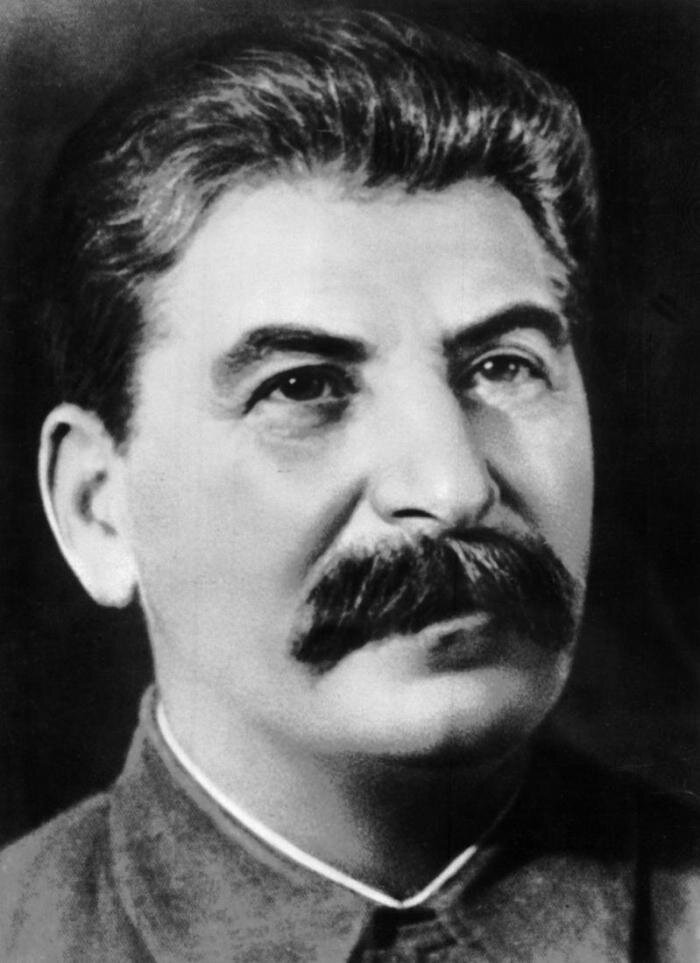Recently, the renowned TV host and Orthodox publicist Boris Korchevnikov visited Tashkent. He reacted sharply to the statue of Stalin in Vologda.
— All the prolonged discussions about Stalin are also a continuation of the attempts to understand what actually happened to us in the 20th century.
After all, such shocks are not easily overcome.

This is because Stalin was not just a ruler. In an era of the rejection of God, Stalin became a "god".
Parts of the chronicle of deification:
1929. The phrase "leader of the world proletariat" and "the party of Lenin-Stalin" is uttered for the first time.
1930. Calls to follow the path of Marx-Engels-Lenin-Stalin are printed.
1933. The construction of the White Sea-Baltic Canal named after Comrade Stalin is completed (by the hands of prisoners, which, by the way, was a nonsense in the Tsarist Russia).
1934. "Pravda" referred to Stalin as the "great helmsman". At the 17th Party Congress, Stalin's name was mentioned with enthusiasm 1580 times.
Soon, out of 1961 congress participants, 1188 would be eliminated, and 98 out of 139 candidates for the Central Committee would be executed.
1935. A floral slogan "Greetings to the best friend of the pioneers, Comrade Stalin" appeared at the physical culture parade.
1936. "Pravda" called Stalin the "father of nations".
At the physical culture parade, the phrase "Thank you, Comrade Stalin, for our happy childhood" resonated.
1937. The construction of the Moscow-Volga Canal named after Stalin is completed.
1938. In an article in "Pravda" about the battles on Lake Hassan, it is mentioned for the first time that the Red Army soldiers went into battle shouting "For the Motherland! For Stalin!"
1939. In a greeting from the Academy of Sciences of the USSR on the occasion of Stalin's 60th anniversary, he is referred to for the first time as "the greatest thinker of our time and a corifeus of advanced science".
1940. A collection titled "Songs of the Soviet Land" is published featuring verses: "From edge to edge across the mountain peaks, Where the free eagle soars, The wise, dear, and beloved Stalin, The people compose a beautiful song".
1948. In the year of Stalin's 70th anniversary, the director of the Institute of Marx-Engels-Lenin-Stalin, Pospelov, called Stalin "the greatest commander of all time and peoples".
1950. "Pravda" writes: "If you encounter difficulties in your work or suddenly doubt your abilities, think of him, of Stalin. And you will gain the necessary confidence. If you feel tired late at night, think of him, of Stalin — and the work will go on. If you are seeking the right solution, think of him, of Stalin — and you will find that solution".
1951. Stalin signed a resolution of the USSR Council of Ministers "on the construction of a sculpture of Stalin on the Volga-Don Canal".
"Pravda" writes that many of Mayakovsky's poems were written directly under the impression of Stalin's speeches. After that, criticism of the poet became unacceptable.
1953. On the same day as Stalin's death, composer Prokofiev also passed away. His death went unnoticed.
In the stampede at Stalin's funeral, up to 3,000 people died (the exact number is classified).
1956. Demonstrations for the annulment of the decisions of the 20th Congress and the restoration of Stalin's "good name" took place in Georgia. As a result of the unrest and dispersal of the demonstrations, 20 people were killed.
This is just a part of an immense chronicle.
And it seems to me that a clear substitution occurred here: according to the iron spiritual laws, where God has been taken away, a false god always arises: and in the conditions of godless ideology, Stalin became a god for those convinced that God does not exist.
He became a god, just as Roman emperors became gods.
The bloody repressive machine he initiated only solidified his status as a false god, as it rewarded the illusion of supposedly the main divine power: to give life or take it away.
In life, Stalin's wife committed suicide, his son became an alcoholic, his daughter shamefully fled to India, and his granddaughter is a punk in the USA.
However, the debates continue not about the real Stalin, but about the mythical one. For some, it is the same religious desire to cling to the myth, while for others, it is an attempt to understand our complex 20th century and how it came to be that a God-bearing people were imposed with godlessness and faith in a false god.